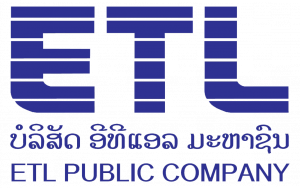If you’re reading this on the aeroplane, there’s a fair chance you don’t often take the time these days to physically flip through pages made of paper. Like many people, you probably get your news and information from social media and other online sources.
It’s hard to imagine, then, how different things were just two decades ago. But when Thanousone Phonamat returned to Laos after completing a degree in Business Administration in Germany in 1996, he could see the future in his mind’s eye.
“In my studies, which included a minor in IT, I learned that the internet was something that was going to change the world,” he says.
“I could see how it would help poor countries to develop. But when I came back to Laos, there was no internet, and people were dialling into Thailand for email.”
We’re speaking in his spacious office in the headquarters of Planet Online, the company that first introduced Laos to the possibilities of cyberspace.
Today, Planet is just one in a crowded market of internet service providers, big and small, including the state-owned Lao Telecom. But back in 1996, Thanousone and his business partners had to work hard to convince the Lao Government that the future was online. He laughs at the memory now, but it was hard going.
“We tried to convince the government there are more positives than negatives for having internet in the country,” he says.
“We just had to find a way to prevent all the negative things. I think it took us about four years before we got a license as an Internet Service Provider.”
While they waited, he and his colleagues set up an IT company in 1998, Planet Computers, a service that was an agent for IBM and worked with several international organisations to provide computer services. Planet also opened a retail space in downtown Vientiane, and soon noticed a steady stream of inquiries about email.
“Tourists would come into the shop on Setthatirath Road, and ask for Hotmail, always Hotmail,” he says.
“We kept trying to explain that we only sold computers, but then realised that the city needed an internet café. We thought, why don’t we connect to Thai servers and let everyone use Hotmail?”
That was back in 1998, and the café – the country’s first – charged $2 a minute for customers to log into their online accounts. Incredibly, no one was put off by the price, and while many people would spend just a few minutes checking their mail before leaving, many others stayed for an hour or more.
“I don’t know what they were doing, but we ended up following the tourist route. We opened cafes in Vang Vieng, Luang Prabang and Luang Namtha,” he says.
The internet was well and truly established by then, and dozens of others had followed suit and opened their own internet cafes by the time Lao Telecom, Laos’ official telecommunications company, bit the bullet and launched itself as a service provider.
Planet missed out on being the country’s first official service provider, but Thanousone says the company prides itself on laying the groundwork, and the fact that it has remained independent throughout the years.
Planet finally received its ISP license in 2000, when internet technology was still in the dial-up phase, and signed a revenue-sharing agreement with local telecommunications company ETL the following year.
“Without working with operators, we would not be able to provide good internet access,” he says.
 “We worked with ETL for two years, until they learned enough to set up their own internet service. So we decided to we needed to be independent, and that’s how we came to WiFi in 2004.”
“We worked with ETL for two years, until they learned enough to set up their own internet service. So we decided to we needed to be independent, and that’s how we came to WiFi in 2004.”
Locals and long-time residents might remember the early days of WiFi at public places like Joma café – purchased in half-hour chunks at exorbitant prices alongside your coffee – but today, it’s impossible to imagine the world without constant connectivity. Thanousone says Planet focuses mainly on corporate customers, including most of the country’s banks, and, rather than being resentful of competition, he’s happy to have been one of the country’s internet pioneers. It was even the first country in the region to introduce the 4G network, an achievement that made headlines in neighbouring Thailand and Vietnam.
“Now that the internet is everywhere, in every part of life, we’re happy that we’ve achieved our goal,” he says.
“That’s why we’re looking at other sectors to develop.”
Planet now has projects in rural areas, where communities may be connected to the internet, but unable to afford the right devices to take advantage of the online world.
“Many kids don’t have computers – it’s pointless if you have coverage countrywide but people still have barriers to access,” he says.
Planet set up Alo! as a manufacturing company several years ago, producing affordable and transportable computers and tablets for students, in partnership with Microsoft and the Lao Ministry of Education.
It’s a special Lao thing, and Microsoft consider it good case study,” Thanousone says.
“Today, it’s not just about business profit, but seeing that we can help bring full-speed internet to the whole country and maximising the benefits of technology.”



 ລາວ
ລາວ
